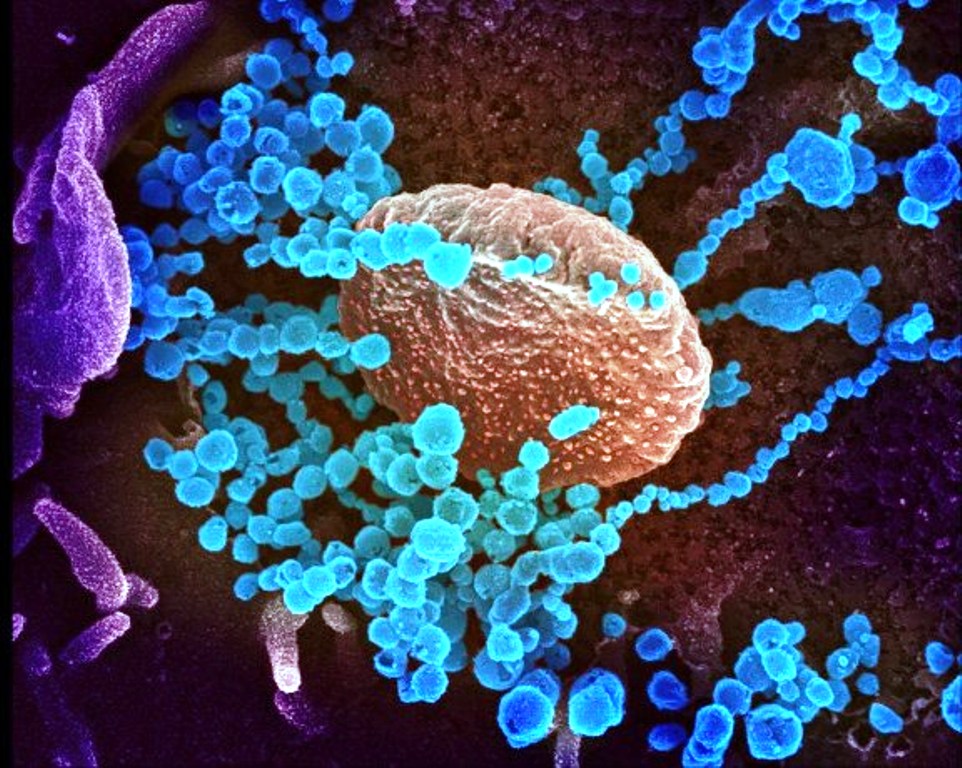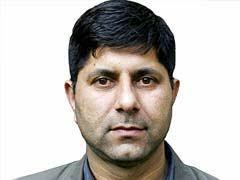by Nazir Masoodi
On Thursday last, my cameraperson broke the news to me that he has tested positive for Covid-19. He had been tested before a minor surgical procedure; doctors have made it a rule in the time of Coronavirus.

I was shocked. Not just because a colleague had tested Coronavirus positive, but also because it meant all of us at the Srinagar bureau may have been exposed to the infection. Covid-19 is a reality and we have to live with it.
The next morning, three of us from the office visited Srinagar’s government Chest Disease Hospital and gave samples. On Sunday, all three tests came back with positive results.
Again, a pang of shock.
I was officially Covid-19 infected. My thoughts instantly went to those I may have come in contact with.
I had met officers; a group of friends, journalists, doctors… the list kept growing in my mind. So did a tiny seed of doubt.
In Kashmir, more than 90 per cent of Covid positive cases are asymptomatic. Almost, all of them turn negative within 14 days of hospital quarantine.
For me, sleepless night followed. I was sure I had followed all virus precautions while meeting my contacts, yet there was a niggling worry.
I wore a mask, had washed and sanitised my hands frequently and had maintained a safe distance.
If I could catch an infection despite all this, how can anyone I met recently be safe, I thought.
On Monday morning, calls started coming from the police, intelligence officials and the health department. I had to give details of my family and extended family. Even relatives I may not have met for weeks. Just protocol for contact tracing, they told me.
The next step was to take my family away and quarantine them at a centre. Covid times for us mean we are losing control of our lives even more. Governments try to tell us they care about our safety more than we do.
In Kashmir, it has been like the Orwellian playbook for long. Internet shutdown, restrictions, detentions, gag orders, all in the name of public safety. One of the most draconian laws used to jail persons for months without trial is also named “Public Safety Act”. The act was brought in by our democratically-elected leaders. As destiny would have it, some of them were recently jailed under the same law.
While the rest of the country is opening up, the lockdown is just getting longer in the Valley, which has been mostly under a shutdown since August, when Article 370 was abrogated.
They cite the growing number of virus cases in Kashmir. The last two weeks have seen a huge jump, so continuing the lockdown is imperative, they say.
Most of the Coronavirus positive tests are from the Chest Disease Hospital Lab where my colleagues and I were tested. After I gave my sample for testing on Friday, the reporter in me woke up.
I tried to see the pattern of tests in Jammu and Kashmir. There are six Covid-19 testing labs in Jammu and Kashmir and some 2.4 lakh tests have been carried out in these. According to Samia Rashid, Principal, Medical College Srinagar, the Chest Disease lab has conducted around 35,000 tests. Of which around 2,300 were positive. So with 17 per cent of the tests, this one hospital accounts for more than 50 per cent of the virus positive tests in J&K.
Was it just coincidence? I tried to find out. I was stunned when I learnt that many people who tested positive at this lab subsequently tested negative at other facilities.
I decided to go for a second test at the Sher-e-Kashmir Institute of Medical Sciences, the biggest health facility in J&K. Just to be sure, I sent a third sample to another facility. Hours after I gave my sample to SKIMS, I was informed that my test at the first lab had returned positive.
By evening, it had spread like wildfire – “the entire NDTV team in Srinagar has Coronavirus”.
Only I was not willing to accept it. I was waiting for the second test.
The night was getting longer. I was constantly thinking about my family, friends and others I had met, whether they, too, would suffer because of faulty testing. My confidence that I’m not Covid-19 positive was not entirely because I was asymptomatic; a rational analysis of the test results from different labs in Jammu and Kashmir had given me a reason to believe that all is not well at CD lab (Chest Disease Hospital).
Those wondering why I went for a second test, let me quote this beautiful couplet of Mirza Ghalib – “Qasid ke aate aate khat ek aur likh rakhoun; Main janta hun jo wo likhenge jawab main” (Let me write another letter before the messenger arrives, I know what their reply will be).
On Monday, as the test result arrived from SKIMS, I bowed my head in gratitude. I was relieved. All my contacts and family were safe.
Within 24 hours, everything had changed.
I’m happy to report, yesterday and today two more colleagues also tested negative in the second round. Both are in hospital quarantine. I hope they come out soon.
Our OB van driver was also declared negative after he tested positive at – yes, CD lab, on Sunday.
The good news from this entire episode is that it has propelled the government into action. The number of positive cases has suddenly dropped in Kashmir.
The Principal of Government Medical College, Srinagar, who oversees all associated hospitals of medical college, says while she stands by the report of CD hospital, she cannot rule out errors in any system and every step is being taken to fix it.
Personally, I believe there can be an aberration anywhere. There can be an odd false positive or false negative test.

But when there are multiple instances, there is a need for course correction. In the last 24 hours, at least 30 “Covid positive” cases tested at CD lab have returned negative in another round of testing at different labs.
Mind you, I repose faith in the same health system because I know we have the best of doctors who have always chosen service over self. Their sacrifice and commitment to people go beyond being Covid warriors.
Doctors and paramedics in Kashmir have been “frontline warriors” for 30 years. They have braved bullets, sticks and stones to reach the hospital and save lives. In 2016, 13,000 people were injured during the Valley unrest. Over 7,000 of them had received pellet injuries. The same doctors restored the sight of hundreds hit in the eye by the lethal rubber pellets.
I went back to the same doctors for help.
And I “beat Covid-19” within 24 hours.
(Nazir Masoodi is NDTV’s Srinagar Bureau Chief. The write-up appeared on the NDTV website first)















